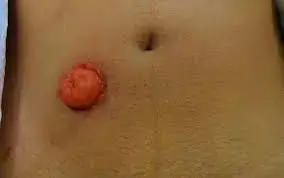- Home
- Medical news & Guidelines
- Anesthesiology
- Cardiology and CTVS
- Critical Care
- Dentistry
- Dermatology
- Diabetes and Endocrinology
- ENT
- Gastroenterology
- Medicine
- Nephrology
- Neurology
- Obstretics-Gynaecology
- Oncology
- Ophthalmology
- Orthopaedics
- Pediatrics-Neonatology
- Psychiatry
- Pulmonology
- Radiology
- Surgery
- Urology
- Laboratory Medicine
- Diet
- Nursing
- Paramedical
- Physiotherapy
- Health news
- Fact Check
- Bone Health Fact Check
- Brain Health Fact Check
- Cancer Related Fact Check
- Child Care Fact Check
- Dental and oral health fact check
- Diabetes and metabolic health fact check
- Diet and Nutrition Fact Check
- Eye and ENT Care Fact Check
- Fitness fact check
- Gut health fact check
- Heart health fact check
- Kidney health fact check
- Medical education fact check
- Men's health fact check
- Respiratory fact check
- Skin and hair care fact check
- Vaccine and Immunization fact check
- Women's health fact check
- AYUSH
- State News
- Andaman and Nicobar Islands
- Andhra Pradesh
- Arunachal Pradesh
- Assam
- Bihar
- Chandigarh
- Chattisgarh
- Dadra and Nagar Haveli
- Daman and Diu
- Delhi
- Goa
- Gujarat
- Haryana
- Himachal Pradesh
- Jammu & Kashmir
- Jharkhand
- Karnataka
- Kerala
- Ladakh
- Lakshadweep
- Madhya Pradesh
- Maharashtra
- Manipur
- Meghalaya
- Mizoram
- Nagaland
- Odisha
- Puducherry
- Punjab
- Rajasthan
- Sikkim
- Tamil Nadu
- Telangana
- Tripura
- Uttar Pradesh
- Uttrakhand
- West Bengal
- Medical Education
- Industry
Advanced endoscopic management bests surgery for non-malignant polyps: Study

Advanced endoscopic interventions for non-malignant polyps (NMP) are safe and effective, according to a recent study published in the American Journal of Surgery
Colectomy is bowel resection of the large bowel. It consists of the surgical removal of any extent of the colon, usually segmental resection. In extreme cases where the entire large intestine is removed, it is called a total colectomy, and proctocolectomy denotes that the rectum is included. Colectomy for nonmalignant polyps (NMP) is common in the United States. A group of researchers aimed to study the rate of colectomies performed for NMP and postoperative outcomes. We hypothesized that the annual colectomy rate for NMP is high despite the rare occurrence of invasive cancer found on final pathology.
The researchers analyzed data from the ACS-NSQIP participant user file, colectomy module, from 2013-2019. Patients who underwent elective colectomy with a diagnosis of either NMP or colon cancer were included. Patient demographics, comorbidities, colectomy rates and trends over the study period, as well as 30-day postoperative complications and mortality rate, were assessed.
The Results of the study are as follows:
67,921 colectomies were performed for the diagnosis of cancer or NMP [14,726 (19%) only NMP]. The postoperative overall morbidity was 21% and mortality was 0.5% (1% for patients older than 70). Only 489 (3.3%) of colectomies performed for NMP had cancer on final pathology. The percentage of colectomies performed for NMP decreased from 22% to 16% over the study period.
Thus, the researchers concluded that colon resections for non-malignant polyps are still common and are associated with significant morbidity and mortality. There is a low incidence of invasive cancer on final pathology. Advanced endoscopic interventions for non-malignant polyps should be considered whenever possible and appropriate.
Reference:
Colectomy for polyps is associated with high risk for complications and low risk for malignancy: Time for endoluminal surgery? by Ilker Ozgur et al. published in the American Journal of Surgery
Dr. Shravani Dali has completed her BDS from Pravara institute of medical sciences, loni. Following which she extensively worked in the healthcare sector for 2+ years. She has been actively involved in writing blogs in field of health and wellness. Currently she is pursuing her Masters of public health-health administration from Tata institute of social sciences. She can be contacted at editorial@medicaldialogues.in.
Dr Kamal Kant Kohli-MBBS, DTCD- a chest specialist with more than 30 years of practice and a flair for writing clinical articles, Dr Kamal Kant Kohli joined Medical Dialogues as a Chief Editor of Medical News. Besides writing articles, as an editor, he proofreads and verifies all the medical content published on Medical Dialogues including those coming from journals, studies,medical conferences,guidelines etc. Email: drkohli@medicaldialogues.in. Contact no. 011-43720751


